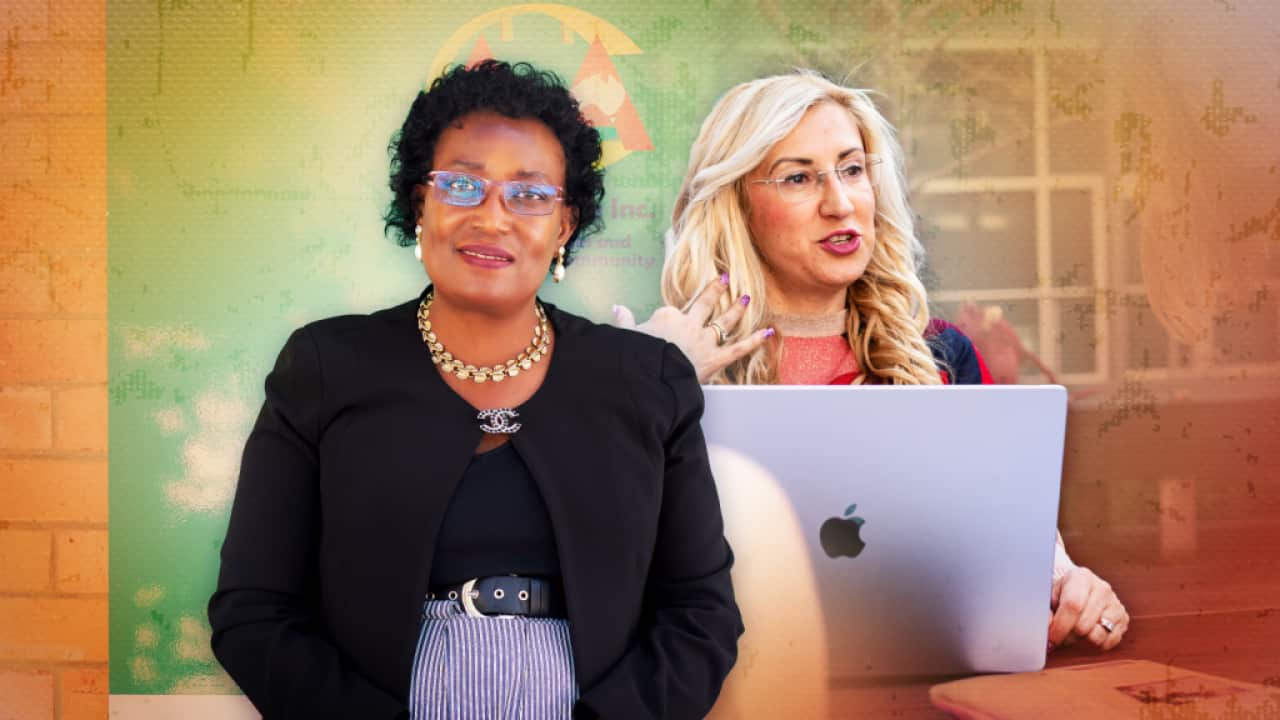Some 732 Australians — many of them quiet pioneers of social change and champions of community empowerment — have been recognised as part of this year's Australia Day honours.
Of them, 320 were awarded a Medal of the Order of Australia (OAM).
SBS met two awardees working to bring about change for those who've been through the criminal justice system.
Selba-Gondoza Luka OAM
For Selba-Gondoza Luka, being named one of this year's recipients of the Medal of the Order of Australia came as a complete surprise.
"To tell you the truth, I was in shock. I'm still in shock that my name will have OAM. It's unbelievable, " she told SBS.
Luka is CEO of Afri-Aus Care, a Melbourne-based community organisation that seeks to empower African and culturally and linguistically diverse Australians.
She said her work is centred around the philosophy of Ubuntu, an ancient African word denoting community, compassion, and the interconnectedness of all people.
One of the many programs Luka runs at Afri-Aus Care is the Black Rhinos Program, which uses sports — particularly basketball and football — to support young African Australians at risk of being caught up in the criminal justice system.

Selba-Gondoza Luka (middle) with some of the members of the Black Rhinos Basketball Team. Source: Supplied / Afri-Aus Care
"These young men, when they come to us, we don't concentrate much on what they have done," she said.
"We focus on plans for the future, finding them jobs, how they can relate positively with their significant others or how they can be themselves mentors for other young men."
Born in the Southeast African nation of Malawi, the 60-year-old finds motivation in seeing positive change ripple through her community.
"So, people have been empowered, mentored, they are mentors themselves," she said.
"I'm proud to be surrounded by young people who are doing great.
For Luka, her work is far from done.
"I don't know, maybe even when I'm 90 I will continue to work because this job, honestly, I don't call it work."
Marietta Martinovic OAM
Marietta Martinovic is also committed to breaking the cycle of incarceration.
She leads a prison student exchange program called Inside Out, through which groups of RMIT university students study criminology alongside incarcerated students.
"The long-term benefits are incredible," Martinovic said.
"People stop feeling lonely, they stop feeling worthless. And those are incredibly important qualities for people coming out of custody —where you feel worthwhile, where you feel that your voice matters, your experience matters."
The program has offered those on the 'inside' a vital source of hope.

Marietta Martinovic (bottom right) with Inside Out program participants including Pattie (far left, front row). Source: Supplied / Marietta Martinovic
And for those involved from the 'outside', the program allows lived experience to guide their learning.
"I'm learning every day ... about what people really need to know about the criminal justice system, the people who work behind it, and just to give a voice of all the human experiences that occur," said Nicolette Pankovics.
For Martinovic, amplifying the voices of those with lived experience of incarceration provides hope for lasting, systemic change.
LISTEN TO

Record incarceration rates of Indigenous Australians prompt calls for community-led solutions
SBS News
13/11/202405:58
"Because they have been through the system itself, they have experienced it firsthand and they best know what needs to be done to improve the system," she said.
She said her Medal of the Order of Australia is an honour she shares with all of those she works with.
"It really brought tears to my eyes to be even considered ... I feel like the work that I do is just so important. It means so much to me," she said.
"I feel like this is actually a testament to all of the people I've been working with, and there's almost a thousand of them who have gone through my programs over the last decade, and this is really all for them."










